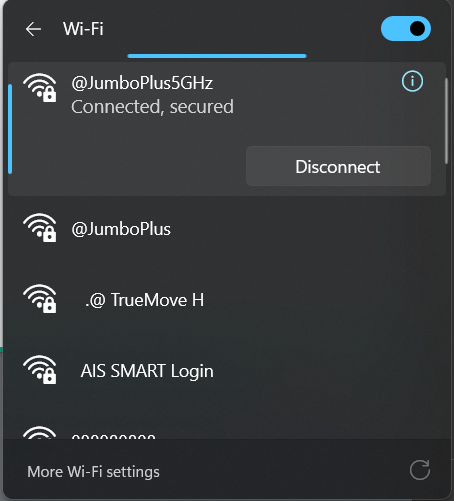Difference between revisions of "Windows 10 and 11"
From CMU ITSC Network
Thomhathai (talk | contribs) |
Thomhathai (talk | contribs) |
||
| Line 1: | Line 1: | ||
| − | <h2><b> | + | <h2><b> Connecting to @JumboPlus5GHz for Windows10 และ Windows 11 </b></h2> <br/><br/> |
# Press the '''globe''' icon on the Taskbar (bottom right) and click '''>''' on the Wi-Fi icon, then select '''@JumboPlus5GHz''' and click '''Connect''' | # Press the '''globe''' icon on the Taskbar (bottom right) and click '''>''' on the Wi-Fi icon, then select '''@JumboPlus5GHz''' and click '''Connect''' | ||
#* If you only see the name @JumboPlus, it means your device only supports the 2.4GHz frequency. | #* If you only see the name @JumboPlus, it means your device only supports the 2.4GHz frequency. | ||
Revision as of 04:57, 25 August 2025
Connecting to @JumboPlus5GHz for Windows10 และ Windows 11
- Press the globe icon on the Taskbar (bottom right) and click > on the Wi-Fi icon, then select @JumboPlus5GHz and click Connect
- If you only see the name @JumboPlus, it means your device only supports the 2.4GHz frequency.
- If you see both names, it means your device supports the 5GHz frequency; it is recommended to connect to @JumboPlus5GHz.
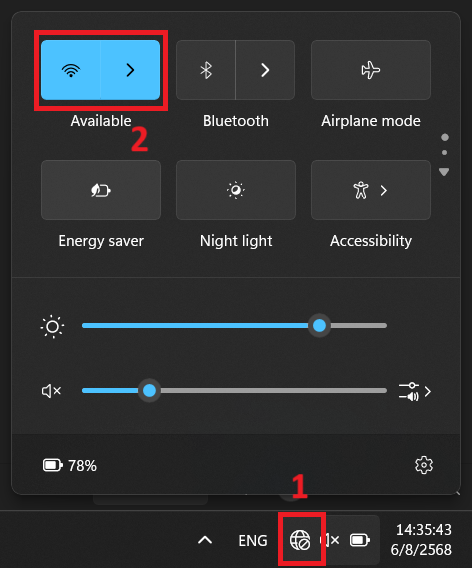
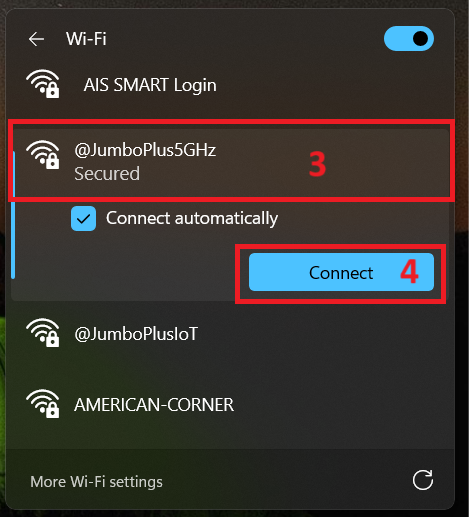
- Enter your Username and Password for the CMU Account provided by the university, then click OK
- CMU Student: Firstname_Surname@cmu.ac.th
- CMU Staff: Firstname.Surname@cmu.ac.th
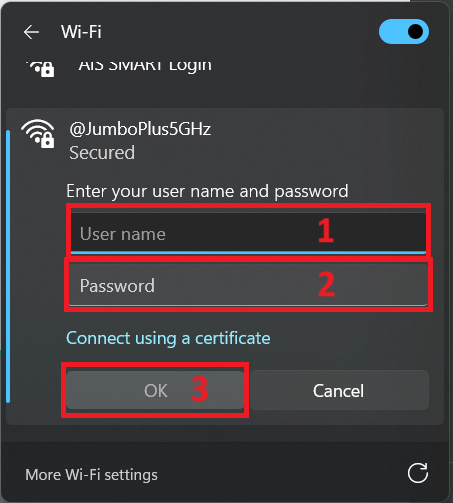
3. Click Connect
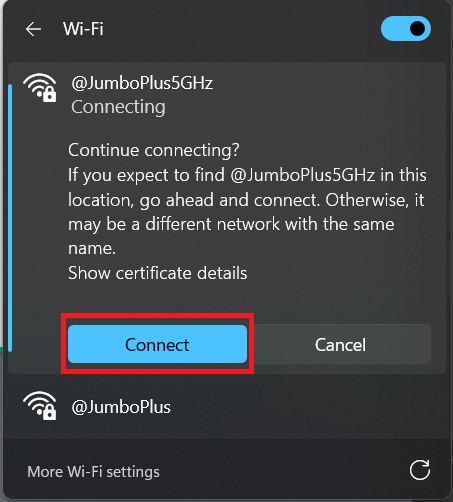
4. After successfully connecting to @JumboPlus5GHz or @JumboPlus, the device will remember the connection. Next time you are in an area with a signal, the device will connect automatically.
